Science
The latest science news.
Latest
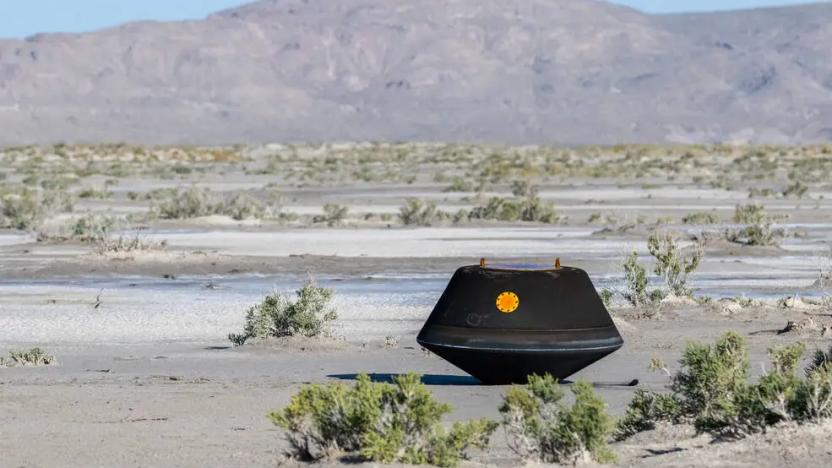
NASA will reveal what OSIRIS-REx brought back from asteroid Bennu on Wednesday
NASA has a livestream planned for 11 AM ET on Wednesday, October 11 to reveal the sample its OSIRIS-REx spacecraft collected from asteroid Bennu.
Cheyenne MacDonald10.07.2023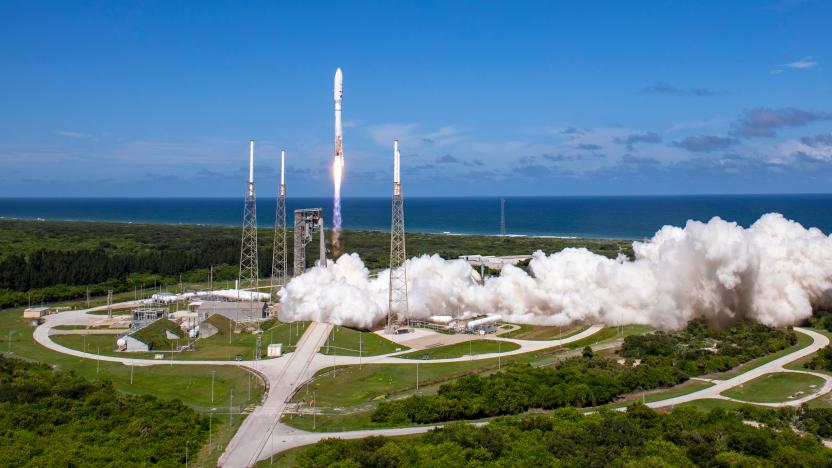
Amazon's first internet satellite launch was a success
Amazon's Project Kuiper is has launched its first two internet satellite prototypes. It plans to gather real-world data from the mission ahead of launching production in 2024.
Kris Holt10.07.2023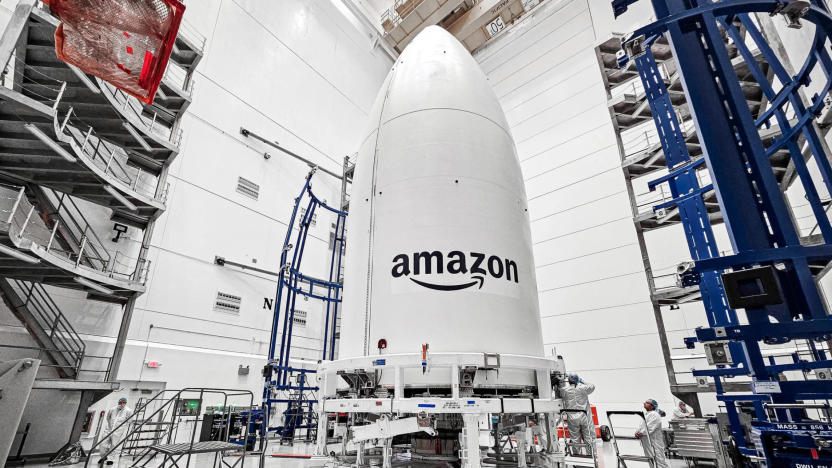
The first two Amazon Kuiper satellites are set to launch on October 6
Amazon is launching the first two Project Kuiper satellites during the Protoflight mission.
Mariella Moon10.05.2023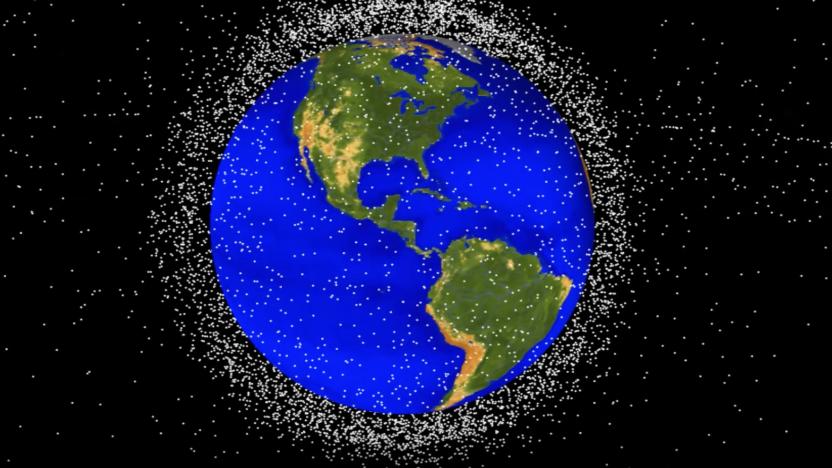
The FCC has begun fining companies over their dead satellites
Dish Network was fined $150,000 by the FCC after it failed to carry out the proper disposal plan for its decommissioned EchoStar-7 satellite in 2022.
Cheyenne MacDonald10.04.2023
Prada will help design the spacesuits for NASA's 2025 Artemis III mission
The luxury designer will work closely with Axiom Space.
Sarah Fielding10.04.2023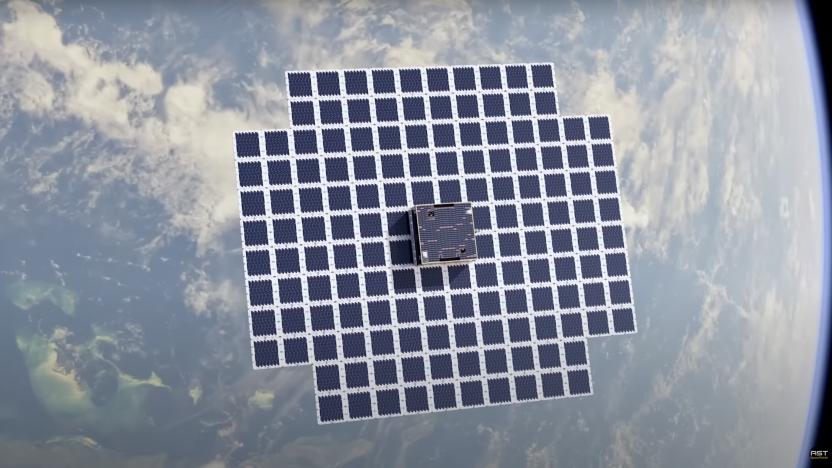
One of the brightest objects in the night sky is a human-made satellite
The BlueWalker 3 satellite launched in 2022 by AST SpaceMobile as a test for what eventually could be a fleet of nearly 100 broadband satellites.
Cheyenne MacDonald10.03.2023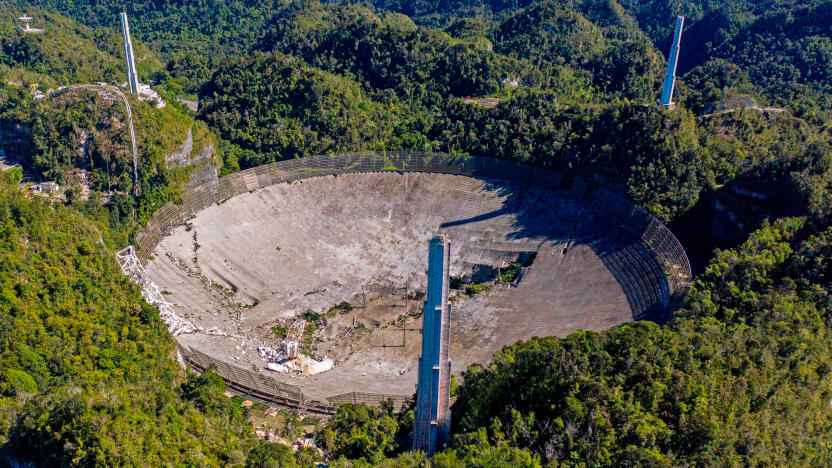
The Arecibo Observatory's next phase as a STEM education center starts in 2024
Nearly three years after the Arecibo Observatory's main telescope collapsed, the NSF has awarded $5.5 million in funding to four institutions who will transform it into a STEM education center.
Cheyenne MacDonald09.30.2023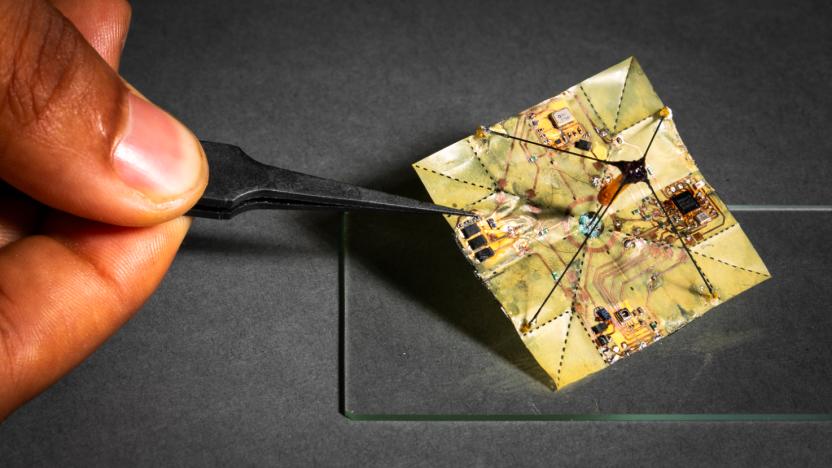
These flying origami-inspired robots change shape in mid-air
Scientists at the University of Washington have developed flying robots that change shape in mid-air. The solar-powered bots have a distinctive look that resembles origami.
Lawrence Bonk09.29.2023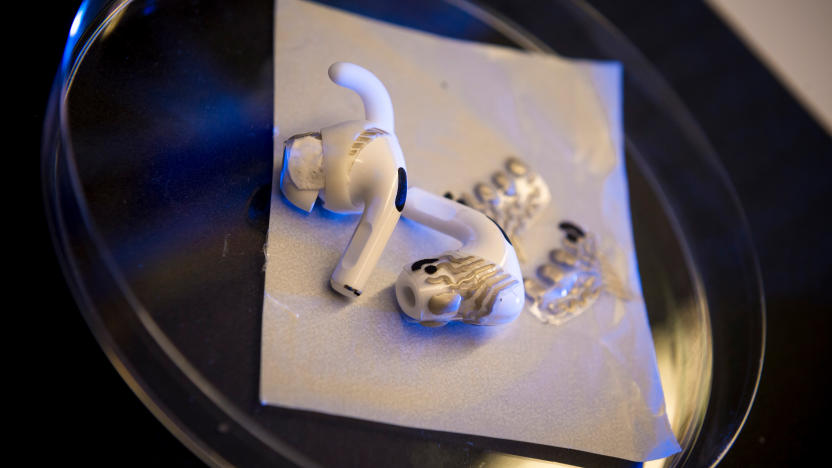
Researchers developed 3D-printed sensors that can record brain activity on earbuds
Researchers at the University of California San Diego have developed 3D-printed biosensors that can detect electrophysiological activity coming from the brain.
Malak Saleh09.28.2023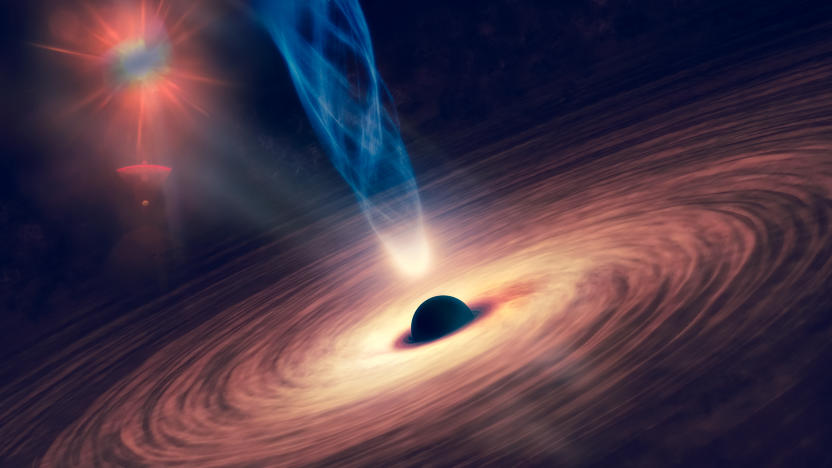
Scientists confirm that the first black hole ever imaged is actually spinning
The first black hole humanity has ever imaged has also provided us with what researchers are calling "unequivocal evidence" that black holes spin.
Mariella Moon09.28.2023
Dave Limp will lead Jeff Bezos' Blue Origin after 'retiring' from Amazon
David Limp's retirement didn't take. Just days after stepping down from Amazon, he's been tapped by Jeff Bezos to lead Blue Origin.
Andrew Tarantola09.26.2023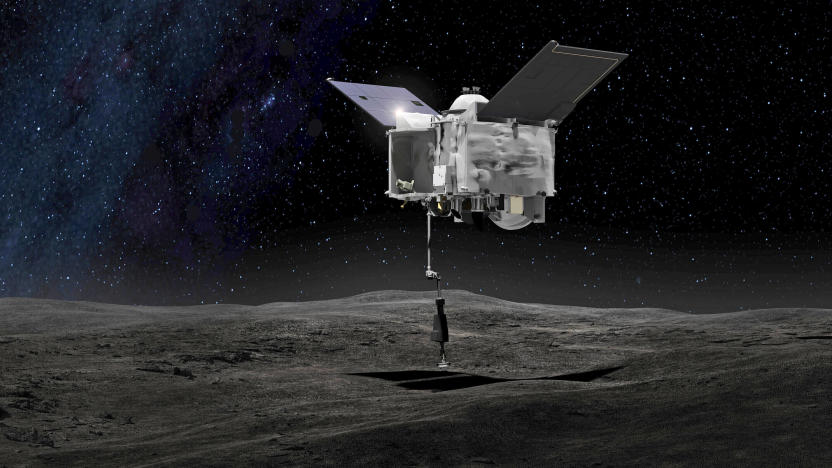
OSIRIS-REx used a Tesla-esque navigation system to capture 4.5 billion-year-old regolith
NASA's novel sampler spacecraft relied on complex visual maps and inertial meters to figure its relation to the asteroid Bennu.
Andrew Tarantola09.26.2023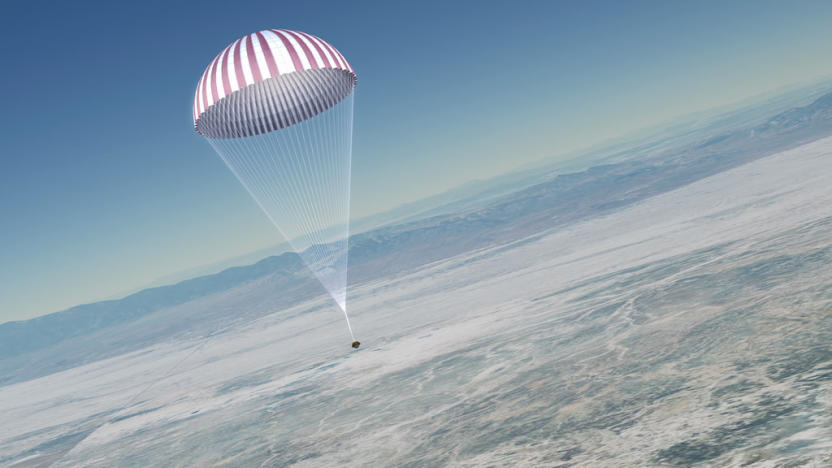
NASA's OSIRIS-REx successfully delivers asteroid samples back to Earth
Seven years ago, NASA’s OSIRIS-REx mission was launched to collect asteroid samples from the near-Earth object Bennu. Today, the samples made landfall on Earth, closing a long-awaited chapter for the mission.
Malak Saleh09.25.2023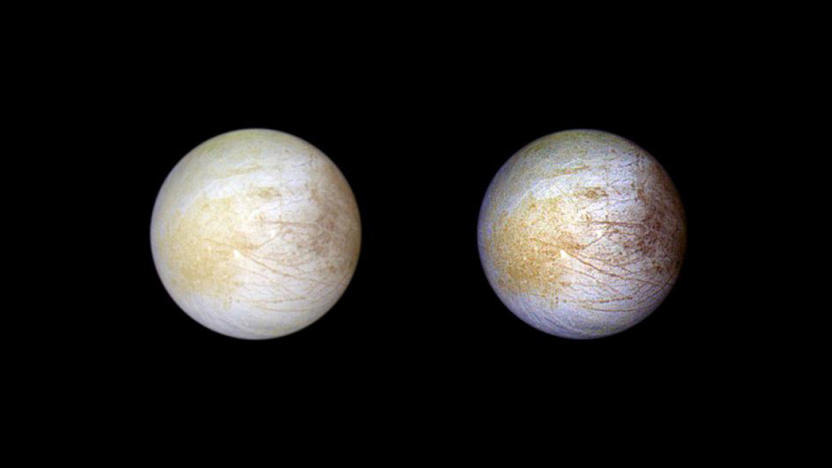
NASA's James Webb Telescope may have found the source of Europa's carbon
Europa is one of the objects in our solar system that's under observation for potentially having the conditions to support life.
Mariella Moon09.22.2023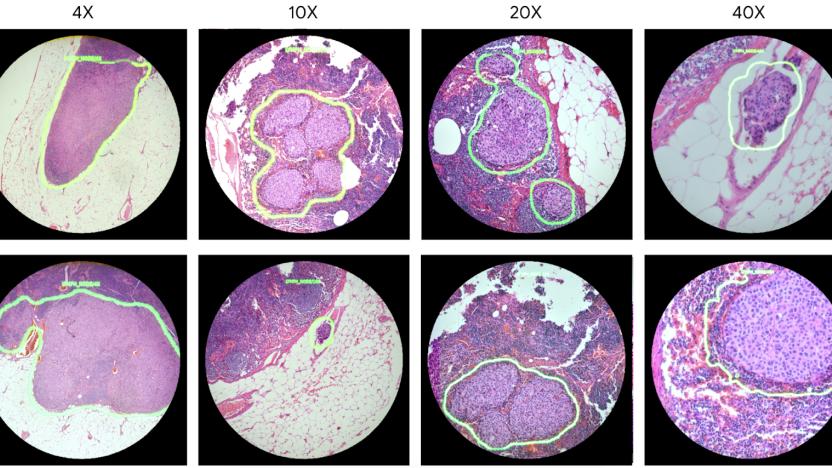
Google is developing an AI-powered microscope to help doctors spot cancer
Google is developing an AI-powered microscope that incorporates intelligence enhancements to overlay visual indicators in real-time, allegedly making it easier to classify samples and identify cancer cells. The tool is being prototyped and rolled in partnership with the Department of Defense.
Malak Saleh09.20.2023
How a pioneering mixed-gender newsroom covered the A-bomb
Writing for Their Lives by historian Marcel Chotkowski Lafollette recounts the work of America's first female science and tech reporters working for E.W. Scripps' Science Service.
Andrew Tarantola09.19.2023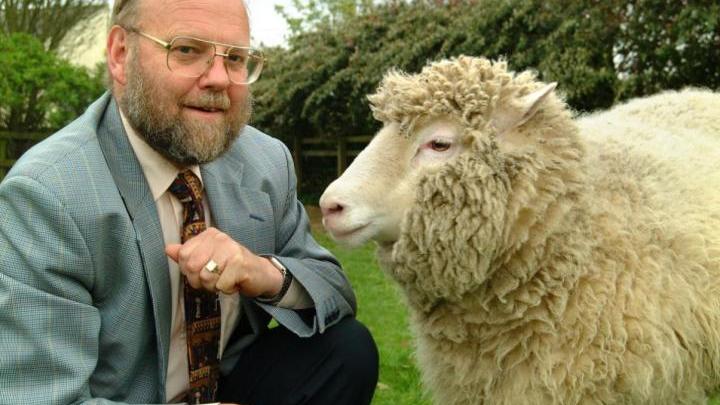
Sir Ian Wilmut, who cloned Dolly the sheep, has died
Sir Ian Wilmut, the scientist who led the team that cloned Dolly the sheep in 1996, has died at 79. The University of Edinburgh, where he served as a professor before his 2012 retirement, announced his passing today.
Will Shanklin09.12.2023
FAA grounds Starship until SpaceX takes 63 'corrective actions'
The FAA has closed its investigation int SpaceX's ill-fated April Starship launch, but that doesn't mean the company will be flying again any time soon.
Andrew Tarantola09.09.2023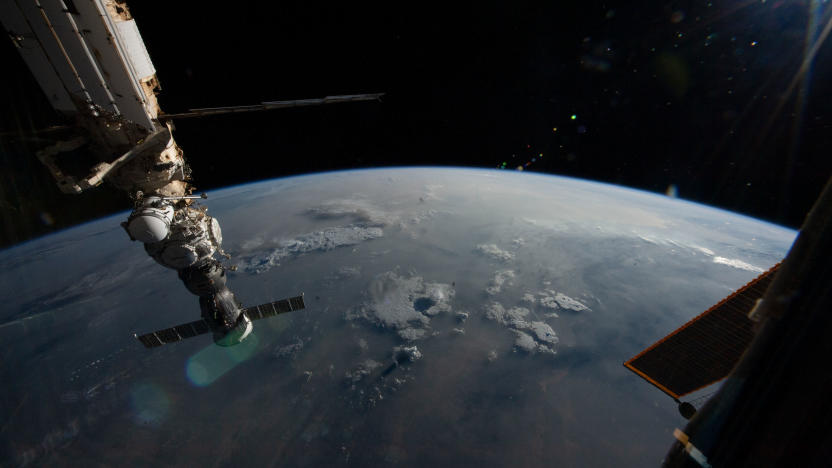
Scientists may have a solution to the International Space Station's fungus problem
In a cross-collaboration between researchers at the University of Colorado, MIT, and the NASA Ames Research Center, researchers studied how to prevent microbial build-up on surfaces on the ISS. The findings are critical because fungal growths can clog filters in water processing systems and make astronauts sick.
Malak Saleh09.09.2023
An experimental rice-sized implant monitors how drugs affect tumors
Researchers have developed a rice-sized implant hat can test the effects of drugs on a patient’s brain tumor in real-time during surgery. Experts at Brigham and Women’s Hospital in Boston designed the device specifically to help test treatments in patients with brain cancers or gliomas, a type of tumor that originates in the brain or spinal cord.
Malak Saleh09.08.2023